PREVIOUS
Golden Quadrilateral Man
August 24 , 2018
2422 days
7804
0
Golden Quadrilateral Man
- - - - - - - - - - - - -
Atal Bihari Vajpayee
- Vajpayee was born on December 25, 1924. His father was a schoolmaster in Gwalior.
- Vajpayee remained a bachelor his entire life. He adopted and raised as his own child Nameetha Bhattacharya, friend’s daughter.
- He joined the Rashtriya Swayamsevak Sangh (RSS) as a teenager in 1939, and became a full-time worker in 1947.
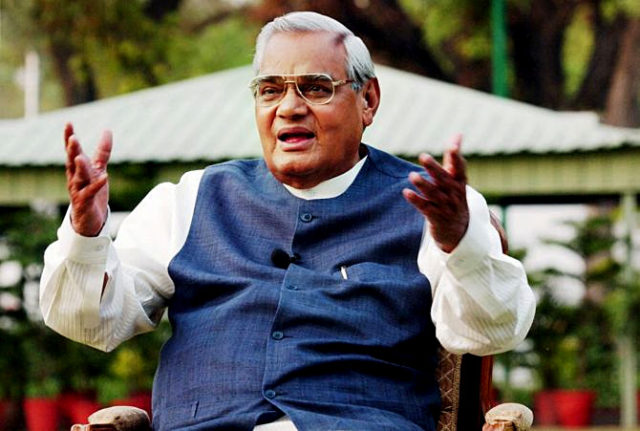
- He was an Indian politician who served three terms as the Prime Minister of India.
- He was the first Indian prime minister who was not a member of the Indian National Congress party to have served a full five-year term in office.
- He died on 16 August 2018 due to age-related illness.
- His party announced that Former Prime Minister Atal Bihari Vajpayee’s ashes will be immersed in 100 rivers across the country.
- On 19 August, Part of his ashes was immersed in Ganga river at Haridwar by his daughter Namita.
Early Life
- Vajpayee did his schooling at the Saraswati Shishu Mandir in Gwalior.
- He subsequently attended Gwalior's Victoria College (now Laxmi Bai College) and graduated with distinction in Hindi, English, and Sanskrit.
- He completed his post-graduation with an M.A. in Political Science from DAV College, Kanpur, and was awarded a first-class degree.
- His activism started with Arya Kumar Sabha of Gwalior, the youth wing of the Arya Samaj, of which he became the general secretary in 1944.
- He also joined the Rashtriya Swayamsevak Sangh (RSS) as a Swayamsevak, or volunteer, in 1939. Influenced by Babasaheb Apte, he attended the Officers Training Camp of the RSS during 1940–44 and became a pracharak, RSS terminology for a full-time worker, in 1947.
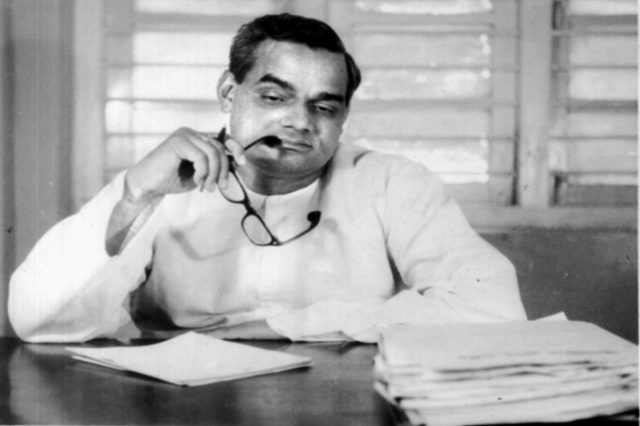
- By 1942, Vajpayee, though only 16 years old at the time, had already become an active member of the Rashtriya Swayamsevak Sangh.
- In August 1942, he and his elder brother Prem were arrested for 24 days during the Quit India Movement. He was released after giving a written undertaking stating that while he was a part of the crowd, he did not participate in the militant events in Bateshwar on 27 August 1942.
Electoral Politics
- In 1951, he was one of the founders and members of the Bharatiya Jana Sangh.
- He served as an editor to publications like Panchjanya, a Hindi weekly; Rashtradharma, a Hindi monthly; and dailies like Veer Arjun and Swadesh.

- 1957: The year was a landmark in Vajpayee's career, as it marked his entry into the mainstream politics.
- In the Lok Sabha Elections that year, he contested from three seats --Lucknow, Mathura, and Balrampur. While he lost in Mathura and Lucknow, he won in Balrampur and became a member of parliament.
- Vajpayee served as the President of the party from 1969 to 1972.
- In the Lok Sabha his oratorical skills so impressed Prime Minister Jawaharlal Nehru that he predicted that Vajpayee would someday become the Prime Minister of India.
During Emergency
- 1977: In 1975, Vajpayee was arrested along with other opposition leaders during the Emergency period imposed by then Prime Minister Indira Gandhi.
- Later, in 1977 after the emergency was withdrawn, Jan Sangh merged with other opposition parties to form Janata Party, solely to oppose the rule of Indian National Congress.
- In the general elections that year, Janata Party emerged as the victor and formed a government led by Morarji Desai, India's first non-Congress prime minister. Vajpayee became the Minister of External Affairs on his cabinet.
- As foreign minister, Vajpayee became the first person in 1977 to deliver a speech to the United Nations General Assembly in Hindi.
Bharatiya Janata Party (BJP)
- 1980: In 1977, Janata Party was dissolved after Morarji Desai resigned as prime minister. In 1980, Vajpayee joined L.K. Advani, Bhairon Singh Shekhawat, and his other RSS, Jan Sangh colleagues to form Bharatiya Janata Party (BJP) and became the party's first president.
- 1984: In the coming years, the party struggled and in fact in 1984 elections, BJP was left with only two seats in the Parliament. Vajpayee led the party during these years and supported the Ram Janmabhoomi Mandir Movement by RSS and Vishva Hindu Parishad (VHP).
Vajpayee – Prime Minister
First Term
- The BJP became the single largest party in parliament in the 1996 general election.
- Indian president Shankar Dayal Sharma invited Vajpayee to form the government.
- Vajpayee was sworn in as the 10th Prime Minister of India, but the BJP failed to muster a majority among members of the Lok Sabha.
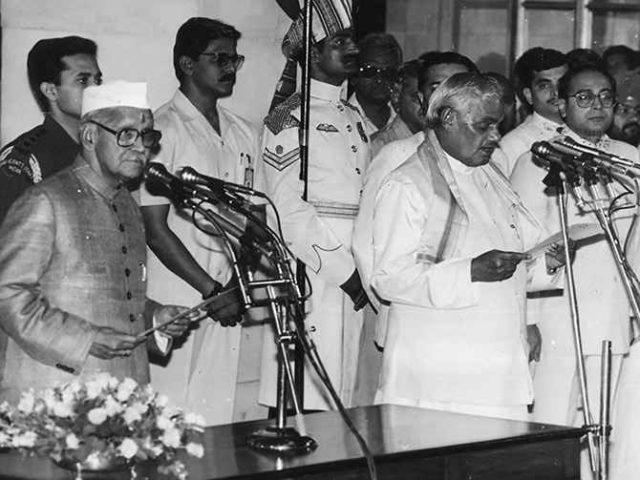
- Vajpayee resigned after 13 days when it became clear that he did not have enough support to form a government.
Second Term
- 1998: BJP came back into power in 1998. The National Democratic Alliance (NDA) was formed and Vajpayee became the 13th prime minister again.
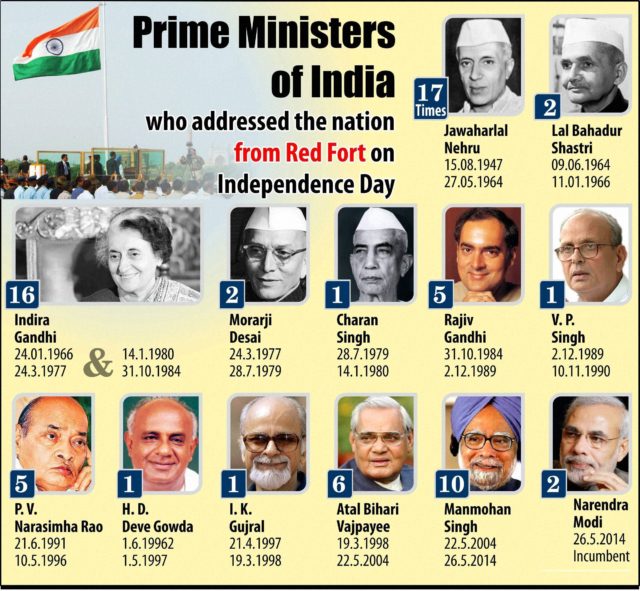
- This government was dissolved after Jayalalithaa-led AIADMK withdrew its support after 13 months and the government came down.
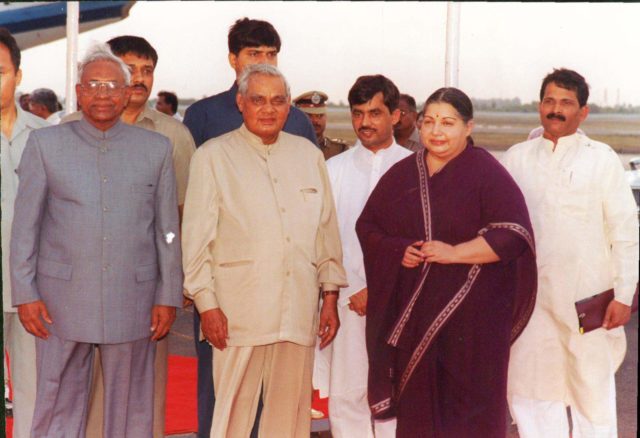
Third Term
- 1999: In his third and final term as the 14th prime minister, Vajpayee served for the full five years.
- While his term took off again with another crisis -- the Kandahar Hijack in December 1999.
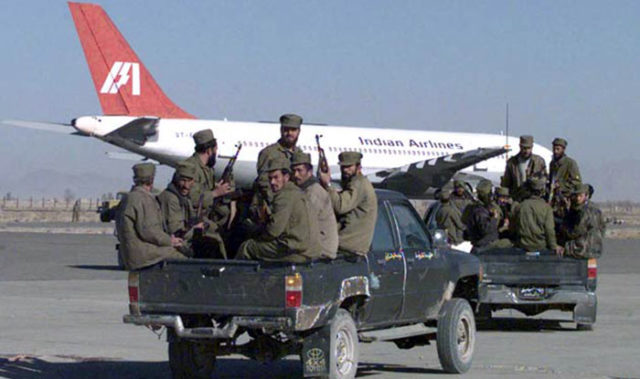
- In March 2000, Bill Clinton, the President of the United States, paid a state visit to India. This was the first state visit to India by a U.S. President in 22 years since President Jimmy Carter's visit in 1978.
Achievements as an Indian Prime Minister
Nuclear tests - 1998
- In May 1998, India conducted five underground nuclear tests in the Pokhran desert (Operation Shakthi) in Rajasthan, 24 years after its first nuclear test (Smiling Buddha) in 1974.
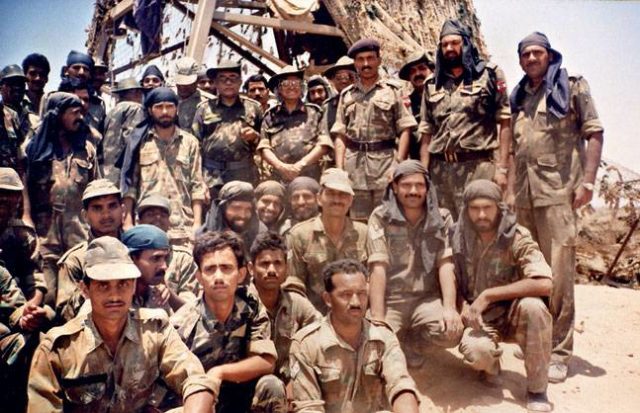
- Two weeks later, Pakistan responded with its own nuclear tests making it the newest nation with declared nuclear capability. While some nations, such as France, endorsed India's right to defensive nuclear power, others including the United States, Canada, Japan, Britain and the European Union imposed sanctions on information, resources, and technology to India.
- US sanctions against India and Pakistan were eventually lifted after just six months.

Lahore declaration
- The Lahore treaty was one of the most important and historical treaties of India and Pakistan to normalize the relations to ease up the military tensions in South Asia.
- The Lahore Declaration was signed on 21 February along with a memorandum of understanding (MoU) after three rounds of talks between the Indian and Pakistani leaders.
Kargil War
- The war took place between May and July of 1999 in Jammu and Kashmir's Kargil district.
- The conflict is believed to have been orchestrated by the then Pakistan army chief General Pervez Musharraf without the knowledge of the then Pakistan Prime Minister Nawaz Sharif.
- It began with the infiltration of both Pakistani troops and terrorists into Indian territory.
- Indian army launched "Operation Vijay".
- The Army declared the mission successful on July 26, 1999; since then the day has been celebrated annually as Kargil Vijay Diwas.
- India increased its defense spending in the budget presented the year after the Kargil war.
2001 attack on Parliament
- The 2001 Indian Parliament attack was a terrorist attack at the Parliament of India in New Delhi on 13 December 2001.
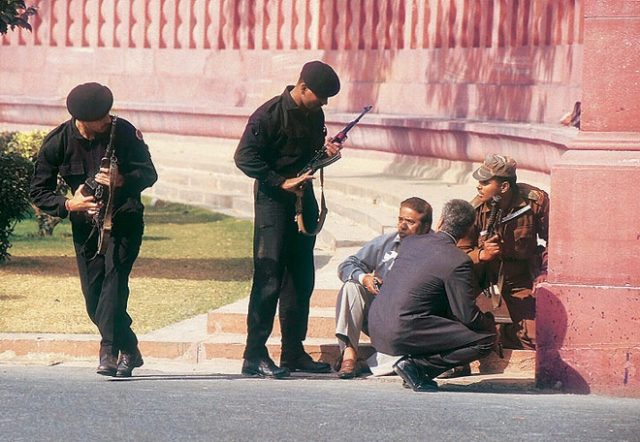
- The perpetrators were Lashkar-e-Taiba (LeT) and Jaish-e-Mohammed (JeM), two terrorist organizations were involved.
National Highways Development Project
- The National Highways Development Project (NHDP) is a project to upgrade, rehabilitate and widen major highways in India. The project was started in 1998 under the leadership of then Prime Minister, Atal Bihari Vajpayee.
- This project is managed by the National Highways Authority of India (NHAI) under the Ministry of Road, Transport, and Highways.
- Golden Quadrilateral network - connects the four major cities of Delhi, Chennai, Mumbai & Kolkata and 981 km of North-South and East-West corridor.
Books
Books by Vajpayee
- National Integration (1961)
- Dynamics of an Open Society (1977)
- New Dimensions of India's Foreign Policy (1979)
- Decisive Days (1999)
- India's Perspectives on ASEAN and the Asia-Pacific Region (2003)
Autobiographies
- India's Foreign Policy: New Dimensions (1977)
- Assam Problem: Repression no Solution (1981)
- Values, Vision & Verses of Vajpayee: India's Man of Destiny (2001)
Books and albums on Poetry
- Meri Ikyavana Kavitaem (1995)
- Meri Ikyavana Kavitaem (Hindi Edition-1995)
- Sreshtha Kabita (1997)
- Nayi Disha – An Album with Jagjit Singh (1995)
- Kya Khoya Kya Paya: Atal Bihari Vajapeyi, Vyaktitva Aur Kavitaem (Hindi Edition, 1999)
- Samvedna – An Album with Jagjit Singh (1995)
- Twenty-One Poems (2003)
Awards Won by Atal Bihari Vajpayee
- Padma Vibhushan - 1992.
- In 1993, Kanpur University honored him with D.Litt.
- Best Parliamentarian Award - 1994.
- Lokmanya Tilak Award - 1994.
- Bharat Ratna - 2015.
- Bangladesh's Liberation War Honour on 7 June 2015 by the Government of Bangladesh.
- - - - - - - - - -
Leave a Reply
Your Comment is awaiting moderation.


